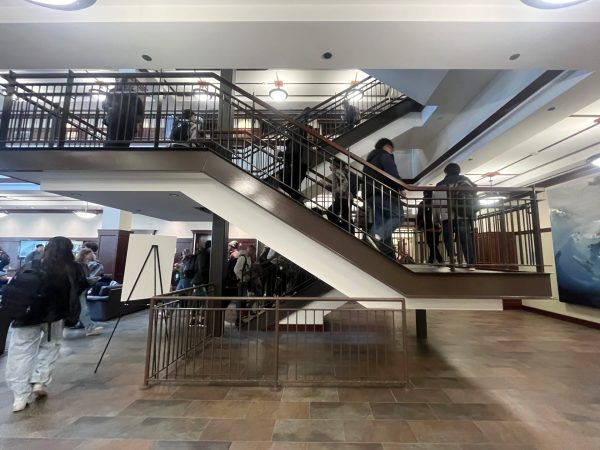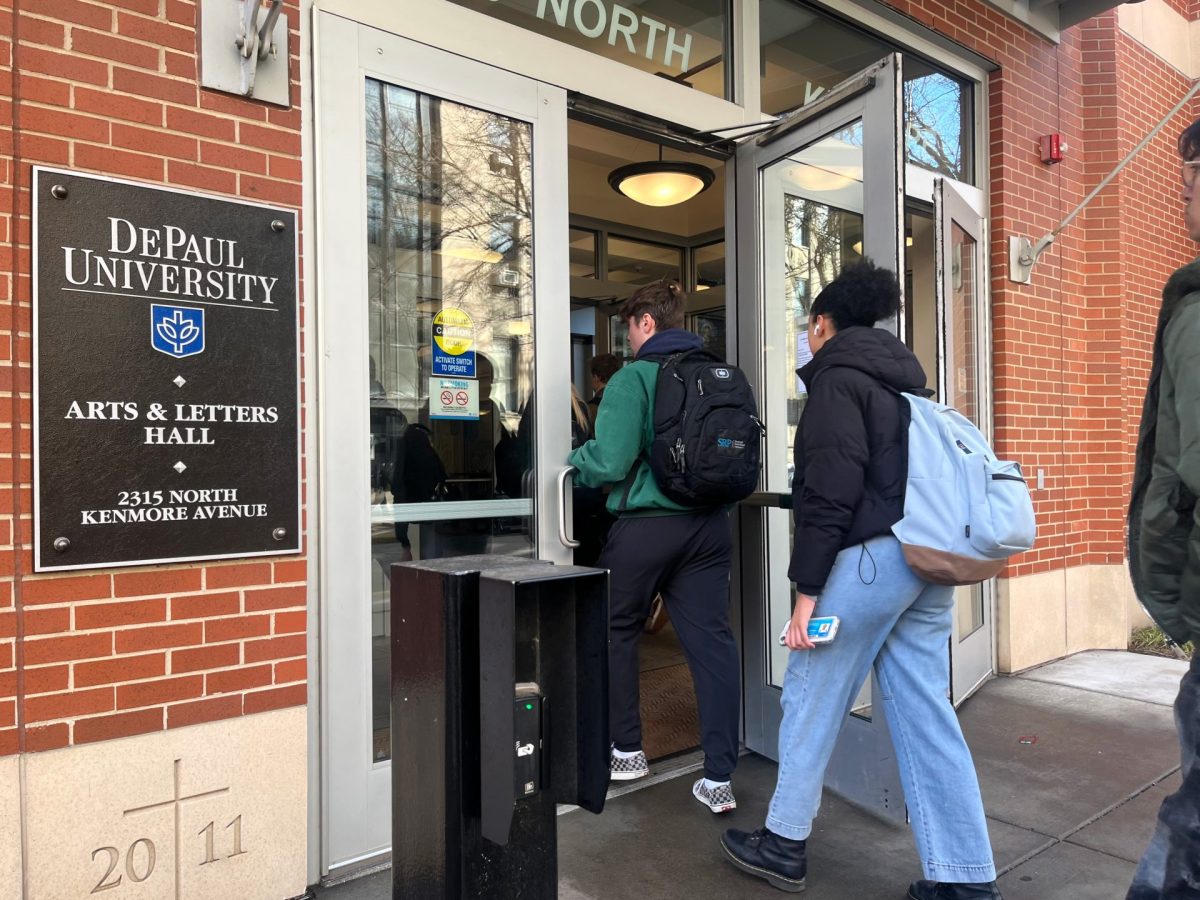Who should decide whether a student’s extended absence is excused — professors or university administrators? DePaul’s recent policy change has put that decision in the hands of professors, prompting both support and concern.
A significant change to DePaul’s extended absence notification system has shifted the responsibility for managing long-term absences from the Dean of Students Office to individual professors and departments.
This shift occurred after the Dean of Students Office announced to faculty via email that, starting in the 2024-25 academic year, it could no longer support the centralized absence notification system, citing an unsustainable increase in requests that expanded beyond its original purpose.
“I personally have never gone to the Dean of Students to request for an absence,” said Harris Ciaccio, a health sciences student. “But it sounds like just keeping it between you and your professor simplifies things.”
The service was originally designed to help students facing medical or personal emergencies that affected their coursework, but its use grew significantly — especially during the Covid-19 pandemic.
The email said that final decisions on accommodations had always been left to professors’ discretion.
Under the previous system, students could submit documentation for extended absences to the Dean of Students Office, which would review and approve the request before notifying professors on the students behalf, providing a consistent process across the university.
University officials from Academic Affairs, multiple colleges, Student Affairs and the University Registrar are currently working on a draft institutional attendance policy, which is under review. In the meantime, faculty are encouraged to determine appropriate flexibility and support within their departments.
Michaela Winchatz, associate dean of faculty and academic affairs in the College of Communication, has taken the lead on devising a new reporting system for her college, similar to the previous university-wide system.
Faculty and students are expressing varying levels of support for the change, while the College of Communication is among the first to implement its own systems for reporting and verifying absences.
But for now, many professors are having to verify extended student absences on their own.
Guillemette Johnston, a professor in the Department of Modern Languages, expressed mixed feelings about the policy change.
“It is all about knowledge,” Johnston said. “With students writing good papers and doing their readings, you know they will fall back on their feet if you are flexible for one or two weeks — but others won’t.”
Johnston appreciated the discretion the policy grants professors, saying that professors often know their students better than the Dean of Students Office. However, she also raised concerns about balancing individual student needs with attendance standards.

Johnston said she is always focused on what she is teaching and what she wants her students to learn, but attendance policies complicate that. She added that granting too many attendance exceptions is unfair to the rest of the class, saying professors are “not here to give private courses” but to uphold the same standards for all students.
Edward Burkard, a DePaul mathematics professor, expressed concerns about the ethical implications of the change in the extended absence policy.
“I don’t want to see any private medical records or anything,” he said. “It should be okay to show administration these things, and they communicate that to us. I don’t think we have any reason to need to know.”
Students had mixed opinions on the new absence policy, with some appreciating direct communication with professors and others preferring the previous system.
Claire Boody, a communication studies student, said working directly with professors is easier since she doesn’t personally know the dean and believes professors typically respond faster than administrators.
Others, like computer science student Emelia Dlugosz, said students should have the option to go through either their professor or the dean. She said the policy could put students in difficult situations if they don’t feel comfortable discussing absences with a professor.
“If the professor doesn’t provide a safe space or energy, and you just want to talk to someone with more authority or a higher standard of professionalism, then you should have the option to talk to the dean rather than the professor,” Dlugosz said.
Some students, including sound design student Jinx Norvell, preferred the previous system, saying professors can be less professional in handling absences and that the Dean of Students Office may be more understanding.
Ty Kickhaefer, a journalism major, worried about the lack of oversight. He said the change could be problematic if each professor interprets absences differently, adding that the absence policy should have some level of authority from a dean to prevent inconsistencies.
To alleviate some of the burden on professors and students, the College of Communication is developing its own absence notification process.
“When the previous centralized process infrastructure for absence notification changed, it was up to the local units — departments, schools and colleges — to figure out how to move forward,” Michaela Winchatz, associate dean of faculty and academic affairs in the College of Communication, said in an email to The DePaulia.
The process mirrors the system previously used by the Dean of Students Office, allowing students to submit documentation through a centralized survey rather than requiring multiple professors to evaluate the same materials.
While the process streamlines documentation review, it does not excuse students from course requirements, leaving attendance policies ultimately up to individual professors.
Other departments at DePaul are still determining how to handle the shift, leading to concerns about inconsistencies across colleges.
Kickhaefer said different systems across schools could create confusion, especially for students taking courses in multiple departments.
Dlugosz agreed, adding that colleges should be transparent about their extended absence systems so students know what to expect.
As students call for more transparency and consistency across departments, the College of Communication’s absence notification process could serve as a model for other colleges.
“We took a collaborative, shared governance approach … which included collecting faculty and staff input and then incorporating that input into the development of the process infrastructure,” Winchatz said.
Related Stories:
- ‘It’s not just about the money’: Trump eyes shuttering the Department of Education
- Scammers are sneaking into DePaul student group chats
Support Student Journalism!
The DePaulia is DePaul University’s award-winning, editorially independent student newspaper. Since 1923, student journalists have produced high-quality, on-the-ground reporting that informs our campus and city.
We rely on reader support to keep doing what we do. Donations are tax deductible through DePaul's giving page.

